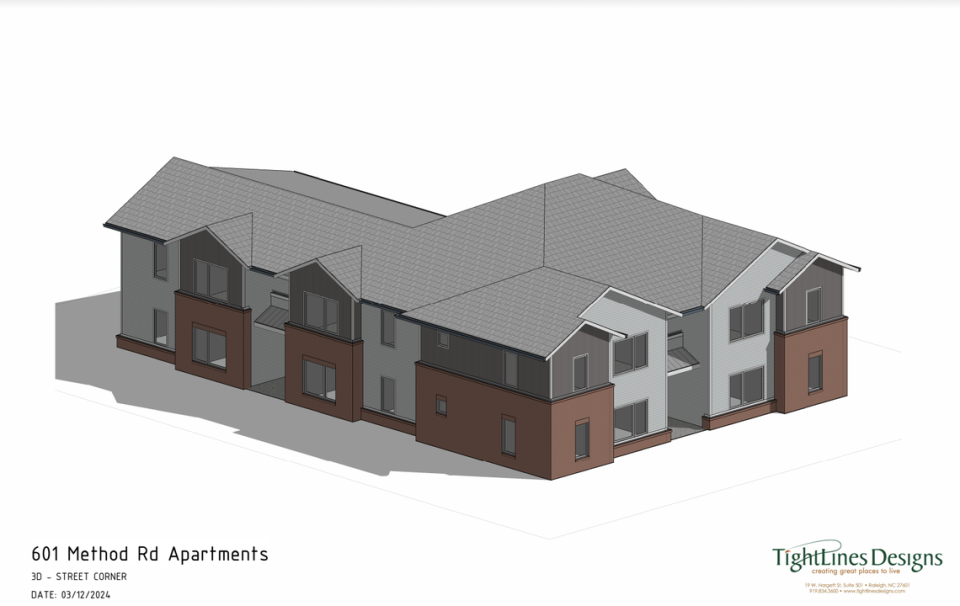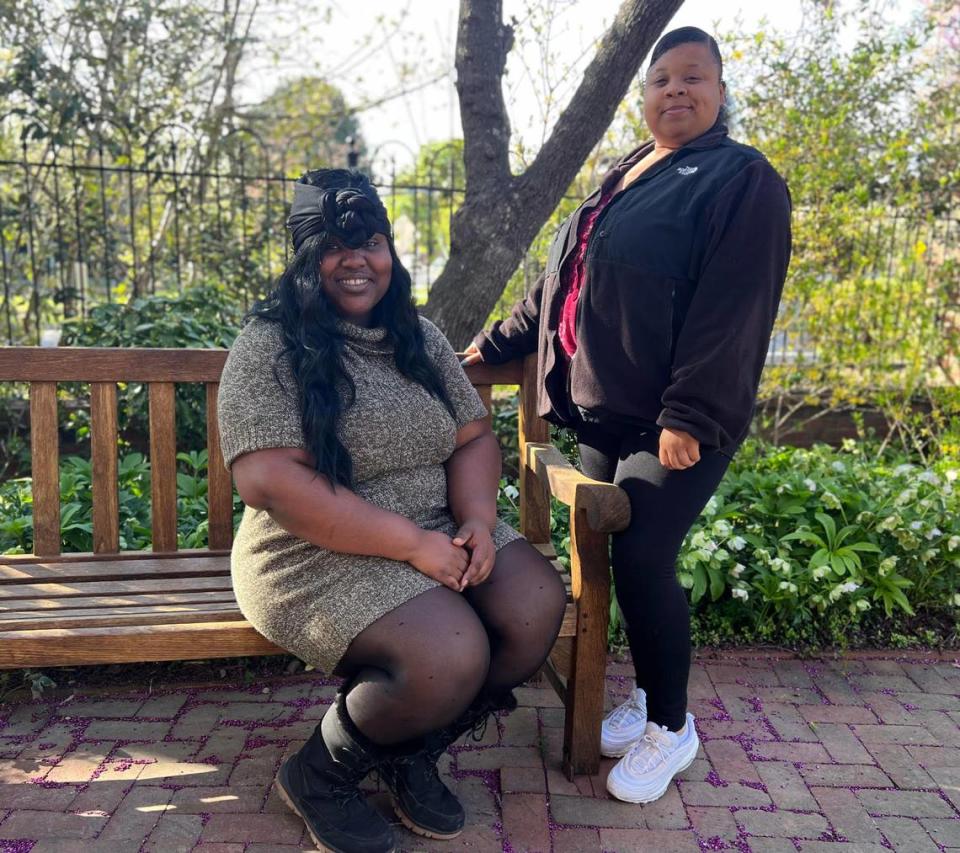Many foster youths become homeless after aging out. Is this new NC project the answer?
At 14, Mia Murphy voluntarily checked herself back into foster care in Wake County.
She’d lived on-and-off with her aunt since she was 6 and had attended more than 15 schools.
“It felt like I was never going to be stable,” she recalled.
Around the same time, Ntianu Nwakuche faced her own struggles. A daughter of Nigerian immigrants, she entered Raleigh’s foster care system when her parents were deemed unfit. She was 12.
For the next few years, life was a revolving door of group homes. Then, at 18, both women were on their own. They’d “aged out.” As far as the system was concerned, they were adults.
“It’s sad and lonely sometimes,” said Nwakuche. She had no one to co-sign a lease, or steer her toward getting a driver’s license, or help when her car broke down.
“I have no safety net. It’s just not there.”
Both eventually found support through The Hope Center at Pullen. They’re now in their 20s and in stable housing, but they’re determined to help others still struggling.
Enter Hope Village at Method, a 10-unit apartment building under development at 601 Method Rd. in west Raleigh.
The $2.8 million project is a partnership between the Hope Center and local nonprofit CASA. It’s also Raleigh’s first supportive housing project for young people transitioning out of foster care and an extension of the center’s existing transition programs.
Operating out of its Cox Avenue headquarters, Hope Center currently offers vouchers to pay for apartments clients independently find around town, but this is the first where there will be designated housing with on-site services.
As youth advisers, Murphy and Nwakuche have worked on the project since its inception. From designing floor plans to picking bathroom fixtures and even the subdivision’s name, they’ve put their mark on every detail.
This month, the project secured an infusion of federal funds as part of Wake County’s $12.6 million package. Despite a $114,000 shortfall remaining, it’s moving forward.
The groundbreaking is slated for this summer. They’re hoping to close the funding gap through donations by then.
“The vision is to provide stability and love,” Nwakuche said. “At the end of the day, those are two big things that foster youth are missing.”

A place to call home
Housing instability among former foster children is a growing problem.
National studies estimate that 25% of former foster youths experience homelessness within four years of aging out. Other barriers include unemployment, mental health issues, incarceration, substance abuse and an incomplete education.
In the Triangle, rising housing costs are adding further pressure, said Meredith Yuckman, The Hope Center’s executive director.
“Finding safe, stable housing is a huge challenge,” she said. But it’s critical for the 30 to 40 youths who age out of foster care in Wake County each year, she said.
“It provides the solid foundation needed for young adults to achieve their education and career goals.”
Hope Village at Method aims to fill that void.
The two-story building will sit on .43 acres of land — which CASA has owned since 1983 — in the Method neighborhood, a modest suburb steeped in rich Black history. (Half-brothers Jesse Mason and Isaac O’Kelly founded the 69-acre village for newly freed slaves in 1872.)
N.C. State University and Meredith College are less than a mile away.
It will include nine one-bedroom units and an office. Each 600-square-foot apartment will come with a kitchen, living room, bedroom and bathroom. Shared laundry facilities will be on site.
Yuckman said one unit will be reserved for a resident adviser, potentially a Hope Center alum, who will coordinate activities and serve as a mentor, “just like on-campus housing” in many colleges and universities.
CASA will lease and maintain the building. The center will refer clients from its transition program for ages 18 to 25, targeting individuals and families making less than 30% of the area median income. That’s around $23,800 to $34,000 annually.
It will also provide on-site case management and support services.
Residents can pay with housing vouchers from the federal government’s Fostering Youth Independence Initiative.
While there will be no hard time limit for tenants at Hope Village, Yuckman said at the end of a two-year voucher in its current program, 92% of its clients transitioned into safe, stable permanent housing.
“Better yet, 58% of those clients didn’t even have to move,” she added. “They began to pay rent for their apartment completely on their own.”
Finding joy in helping others
Nwakuche and Murphy accept that they won’t get to directly benefit. They’ve found joy in helping others get a better head start, they said.
Today, they’re also thriving. Both completed paid internships at The Hope Center in high school and are now pursuing professional careers.

Nwakuche lives on her own in a one-bedroom apartment in North Raleigh. This month, she started a new job as an at-home caregiver for the elderly.
Murphy is a mother to a one-year-old daughter, and has lived in the same one-bedroom apartment for five years — her longest residence anywhere.
She also works at Hope and Vine, a nonprofit founded in 2018 that supports former foster women. In her spare time, she’s studying for an associate degree in social work at Wake Community College.
“I’m shy of maybe three more credits,” she said.
Then it’s onto a bachelor’s degree. She’s also thinking about homeownership. “I’m working with my caseworker about budgeting. I’m happy where I’m at now.”
To help support Hope Village at Method, send checks to The Hope Center at Pullen, 112 Cox Ave Suite 100-A, Raleigh, 27605, or call 919-636-3641. To donate online, go here.

